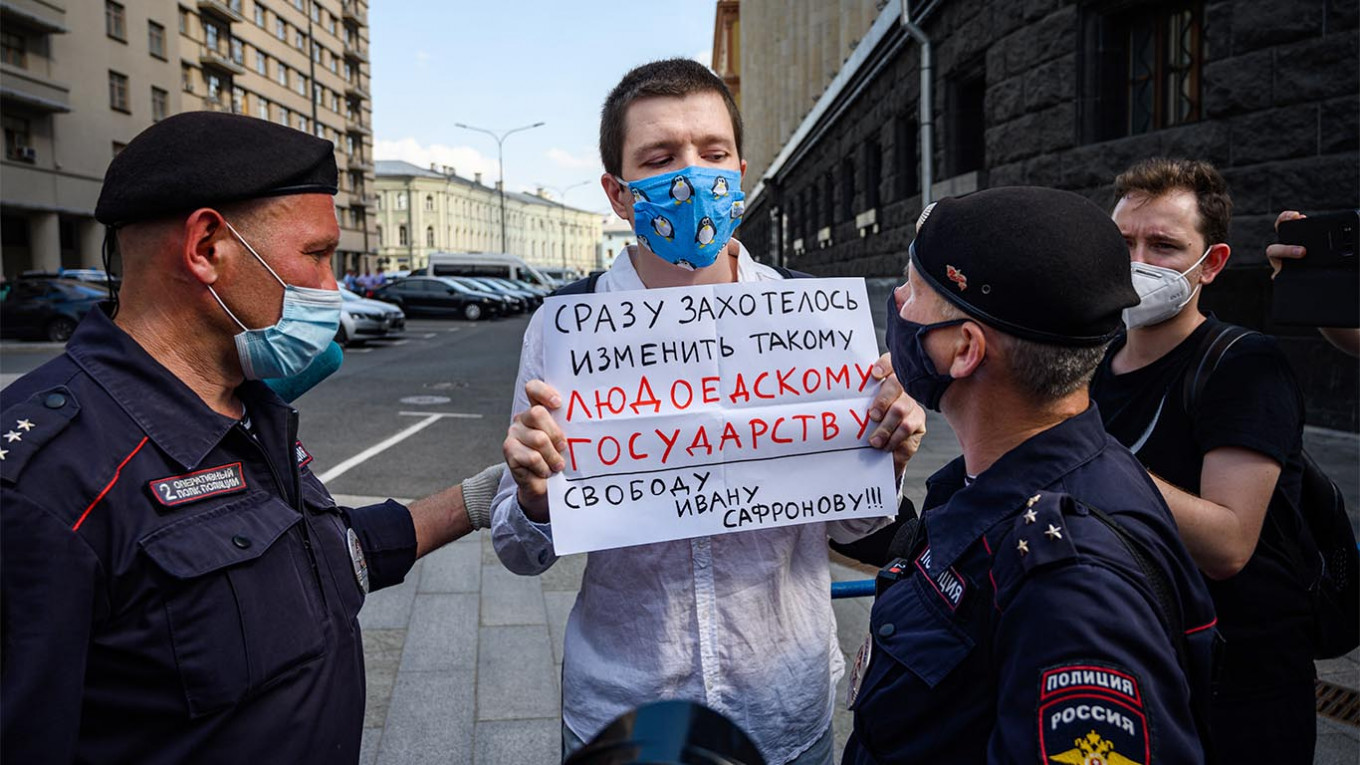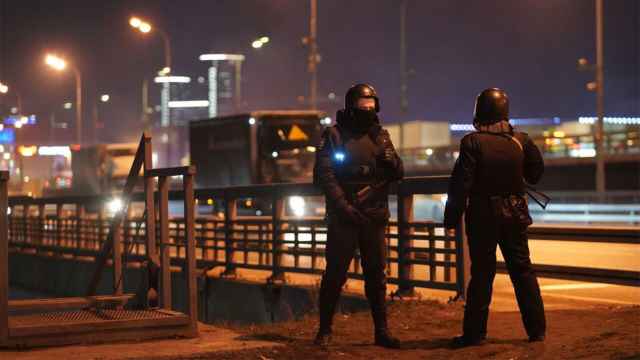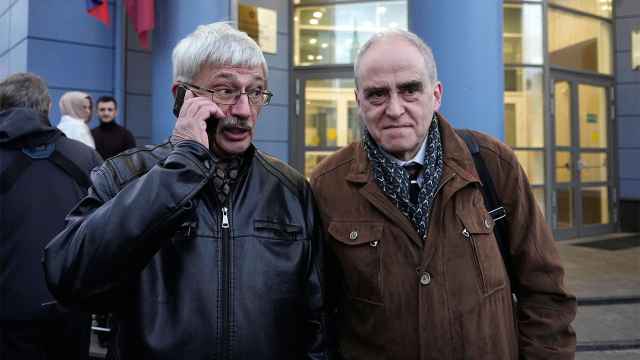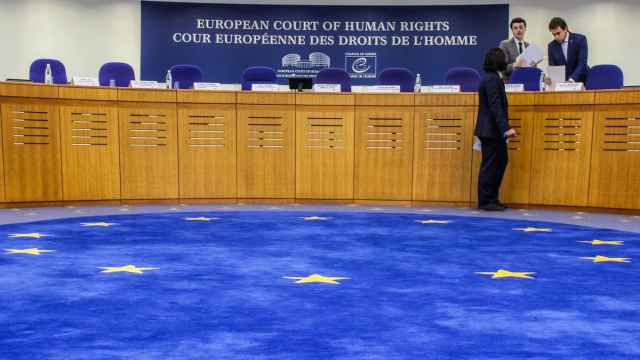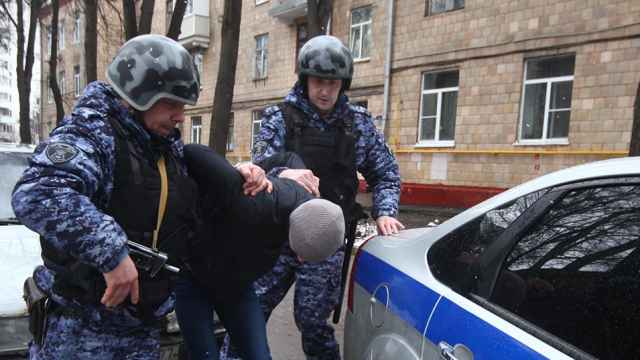The week since Russia adopted constitutional changes has been marked by a series of high-profile arrests and sentences for activists, journalists and government officials.
Here’s a look at some of the near-daily arrests, raids and other cases since the new Russian Constitution came into force following a week-long vote that ended on July 1.
Broken arm, June 30
Mediazona photojournalist David Frenkel was hospitalized with a broken arm in St. Petersburg after a confrontation with police at a polling station during the vote.
Police and election monitors initially said they did not injure Frenkel despite video footage showing two officers knocking the journalist to the ground.
'Justifying terrorism,’ July 6
RFE/RL and Ekho Moskvy radio journalist Svetlana Prokopyeva was convicted of publicly justifying terrorism in her column about a bombing attack that targeted the FSB security service in northern Russia in 2018.
Prokopyeva, 40, avoided jail time after an outcry among colleagues and activists but was found guilty and handed a $7,000 fine by a court in her native city of Pskov.
Treason, July 7
Former reporter Ivan Safronov, 30, was arrested on suspicion of state treason two months after he left his decade-long journalism career and became a media adviser to Russia’s space chief.
Colleagues and observers linked Safronov’s detention to his reporting on Russia’s defense matters and criticized investigators for not presenting any evidence. Safronov faces a closed trial and up to 20 years in prison if found guilty.
Pornographic feminism, July 7
LGBT activist Yulia Tsvetkova, 27, said she is facing “gay propaganda” charges for the third time for posting images of a gay couple in response to a viral pro-constitutional changes ad depicting a dystopian future of gay adoptions.
Under the previous charges of spreading pornography, Tsvetkova faces up to six years in jail for posting drawings of vulvas and vaginas on her social media page dedicated to body positivity.
Murder Charges, July 9
Governor of Russia’s Far Eastern Khabarovsk region Sergei Furgal, 50, was arrested on suspicion of organizing murders of his former business partners in 2004-5.
Analysts noted that Furgal, who handed the pro-Kremlin incumbent a rare defeat in 2018, enjoyed greater popularity than Putin in his region and turnout at the constitutional vote was lower than average. Furgal faces up to life in prison on the charges.
Media and activist raids, July 9
Police detained two activists planning protests against the constitution next Wednesday.
Their detentions were part of a series of raids targeting the homes of journalists with exiled oligarch Mikhail Khodorkovsky’s MBKh Media news website and activists with his Open Russia pro-democracy movement.
Pussy Riot saga, June 22-July 9
Anti-Kremlin activist and Pussy Riot member Pyotr Verzilov has faced at least eight house searches since serving 15 days in jail on charges of public swearing between June 22 and July 6.
Verzilov faces fresh charges of failing to declare his Canadian citizenship and has been assigned a psychiatric evaluation as part of the case following his poisoning attempt in 2018.
AFP contributed reporting to this article.
A Message from The Moscow Times:
Dear readers,
We are facing unprecedented challenges. Russia's Prosecutor General's Office has designated The Moscow Times as an "undesirable" organization, criminalizing our work and putting our staff at risk of prosecution. This follows our earlier unjust labeling as a "foreign agent."
These actions are direct attempts to silence independent journalism in Russia. The authorities claim our work "discredits the decisions of the Russian leadership." We see things differently: we strive to provide accurate, unbiased reporting on Russia.
We, the journalists of The Moscow Times, refuse to be silenced. But to continue our work, we need your help.
Your support, no matter how small, makes a world of difference. If you can, please support us monthly starting from just $2. It's quick to set up, and every contribution makes a significant impact.
By supporting The Moscow Times, you're defending open, independent journalism in the face of repression. Thank you for standing with us.
Remind me later.


